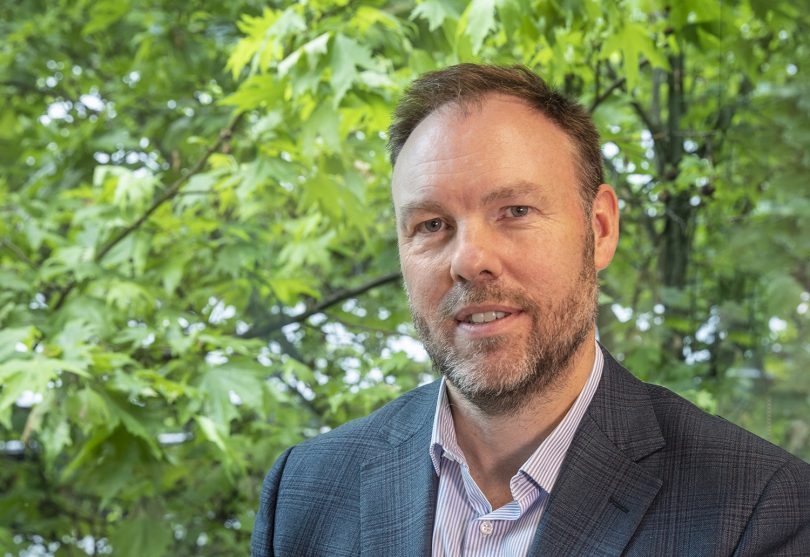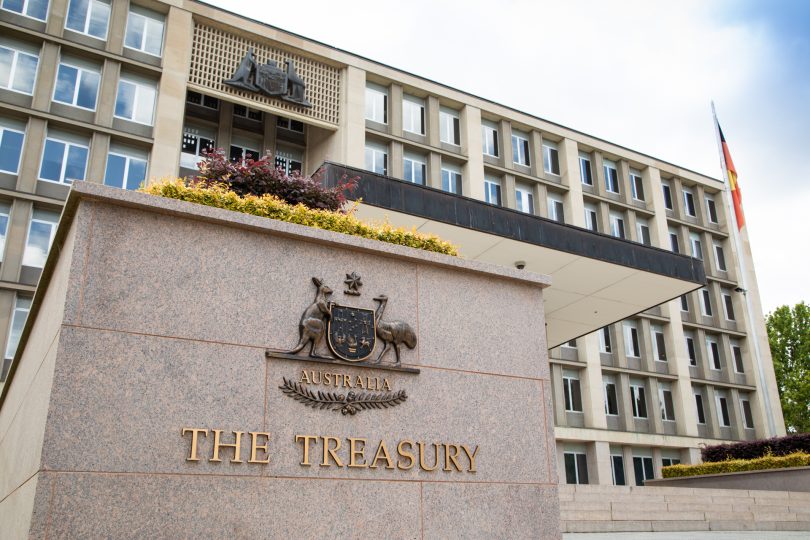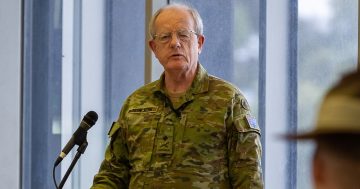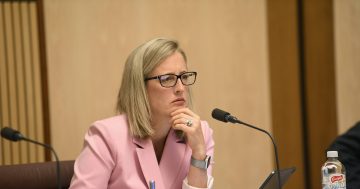
Productivity Commission Chair Michael Brennan: “I want to continue to encourage the Commission to be influential and relevant.” Photo: Productivity Commission.
For someone who has inhabited the supposedly arid world of mainstream economics for all of his career, Michael Brennan uses words such as ‘feel’ and ‘sense’ an awful lot.
The Chair of the Productivity Commission since 2018, Mr Brennan quickly dispels any image of a number cruncher whose view of the world is only seen through the prism of conservative economics.
Perhaps because of the PC’s reputation for being a dry gulch when it comes to economics, but more likely because a lot has happened, particularly more recently, since he was schooled in neo-classical thinking at the ANU, Mr Brennan reveals there is a lot more to him and the Commission than some would think.
For him, economics is a “distinctly human and deeply social science” that should not forget what drives human behaviour, and while data has become increasingly important, it can’t tell us everything.
My Public Sector
Canberra-born Mr Brennan grew up with economics around him as his father was a professor at the ANU, although it was no certainty that he would follow in his footsteps. But when he opted for it after leaving Radford College, the subject captured him.
“I just found economics a really interesting framework to think about the world,” he says.
At the time, in the late 1980s and early 1990s, it was also an exciting time for economics with big reform debates happening in Australia and around the world.
His ANU grounding was very mathematical and theoretical and gave him a solid toolkit, but Mr Brennan says his thinking has broadened over the years, helped by a continuing thirst for knowledge, a stint in the private sector and a couple of seismic events.
After university, he moved to Melbourne where he was an economic adviser to state and federal government. He worked at PricewaterhouseCoopers and the Victorian Treasury before moving back to Canberra in 2015 to take up a role in the Federal Treasury.
A long-time admirer of the Commission, he saw the role as a great opportunity and thought it might suit his ‘style’, shaped in part by his time at PwC and the 2008 Global Financial Crisis.
“I always had a deep respect for the sort of work the Commission did – the sense that it was a very thoughtful organisation in what it did and kind of fearless, saying things that weren’t necessarily flavour of the month but where the analysis led,” Mr Brennan says.
PwC gave him soft skills that have ostensibly little to do with economics but can influence results. The GFC forced an intellectual reset that became even more crucial when the pandemic hit.
Consulting taught him to walk in the client’s shoes and get to the bottom of what may be really driving them and keeping them awake at night.
“Sometimes you’ve got to have that sixth sense about the client and understand what the drivers for the client are to do your job effectively,” Mr Brennan says.
“It’s not about taking literally what’s written on the page as the scope of the assignment, which might be an imperfect codification of what they’re really trying to get at.
“That’s true often in government in places like the Commission.”
He says the skill of great consultants is that they have that ability to read the mood, that they have the emotional intelligence to sense what’s really being asked, “even if they have to give the client some tough love”.
“When we’re undertaking projects and inquiries on all manner of things, I think its really important to step back and be able to make an assessment about why is this issue important, why has it arisen now, what’s the problem the government is trying to solve in giving us this work,” Mr Brennan says.
He encourages Commission staff to provide what he calls “after-sales service”, that it’s not enough just to write the report, and believe the report will explain itself to its audience.
“I want to continue to encourage the Commission to be influential and relevant and to do that understanding our context and also having a strong understanding of some of the broad issues that are confronting policymakers is really important,” he said.
The GFC was a wake-up call not to presume that markets will always behave exactly as economic models say they will, and about the importance of not being locked into a way of thinking.
“Economists had not been thinking much about what could cause the financial sector to really break down if you had a lack of trust, and what do you do about it,” Mr Brennan says.
“It brought to the fore things that were lying dormant because they had been glossed over.”
He says policymakers in Australia were very rapidly able to readjust their thinking to recommend some targeted interventions that went precisely to the problem.
“It was a really impressive example of how smart people can pivot and quickly work out what needs to be done,” Mr Brennan says.
That experience held Australia in good stead when the pandemic forced an upending of economic policy to preserve livelihoods, skills and the economy through the disruptions of lockdowns and restrictions.
Not that policymakers should throw the economic baby out with the bathwater because he believes the fiscal situation is something all governments will have to grapple with.

Michael Brennan says Treasury is an exemplar of exceptional public sector leadership. Photo: Michelle Kroll.
Mr Brennan acknowledges the view that the Commission may have had too narrow an economic focus in the past and been predictable in its outcomes, but the increasing variety of its work has also helped broaden its outlook, starting with the inquiry into problem gambling, which introduced a psychological element, followed by veterans policy, access to justice, the NDIS and mental health.
“In each of those areas, it would be very difficult for anyone to predict what the Commission would be likely to say at the point of the terms of reference because we don’t know ourselves,” he says. “We go on that journey where we learn more about that sector and try to say something sensible.”
Upcoming work reflects that broadening of the Commission’s role.
Along with work on maritime freight and the socio-economic impacts of getting to net-zero emission by 2050 is an inquiry into inauthentic Indigenous arts and crafts, and Closing the Gap indicators.
Mr Brennan says the Commission has done more work on Indigenous policy in recent years, requiring different ways of thinking and engaging, and getting outside traditional frameworks to expand horizons.
“It’s a new space, a bit of journey we’re embracing,” he says. “What issues come into play when dealing with these different cultural issues.
“They are big issues and we take very seriously the deficit we bring and getting up to speed in capability.”
Mr Brennan believes the confluence of issues the world is confronting means these are more than just exciting and challenging times for public servants and policymakers.
“It’s hard to escape the conclusion that we are living through extraordinary times,” he says. “And I feel – in one sense that’s the conceit of every moment – this is the most pivotal moment in history.”
In 25 years of public policy, he hasn’t felt quite this way about some of the big issues of today apart from maybe the GFC.
He rattles off a list: the pandemic and what follows from it, Australia’s changed security position, climate debate and decarbonising the economy in such a short space of time, the fiscal debate, and the future of the world trading system.
“It just feels to me that there are a number of big things that have arisen at this moment – big thorny challenges that have to be tackled,” he said.
These are times for the public service to be attracting the brightest and best and Mr Brennan, who has done his fair share of graduate recruitment, is saddened when young people so quickly dismiss a career in the public sector.
“It gives you a great grounding in the basics, trains you well, and does encourage you to think about the world and how to work towards the public good, which we will only imperfectly achieve, but it’s that mindset that I think is really important,” he says.
He rejects notions of a public service in decline, of degraded capability, pointing to the senior leadership tiers in agencies such as Treasury.
“That’s an outstanding tier of public officials. To sort of say that capability has eroded, I invite them to look at that senior tier and the graduate program coming in. It just doesn’t compute.”




















